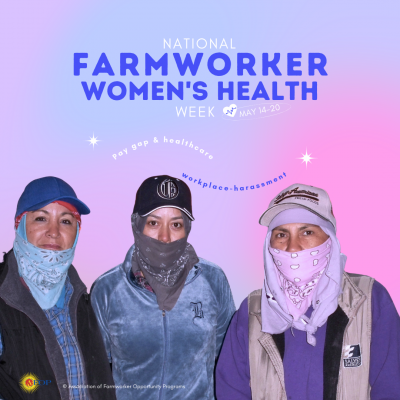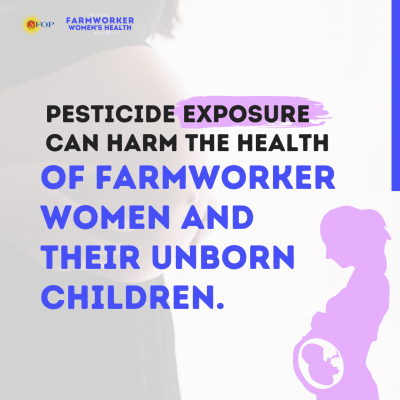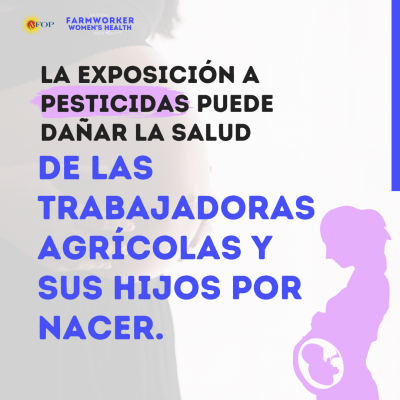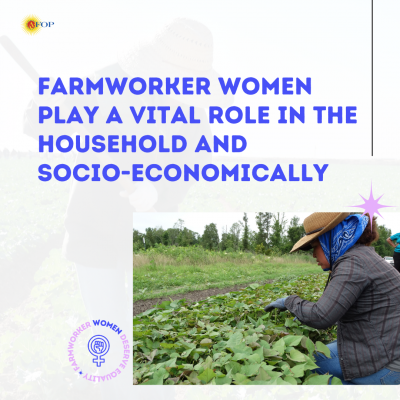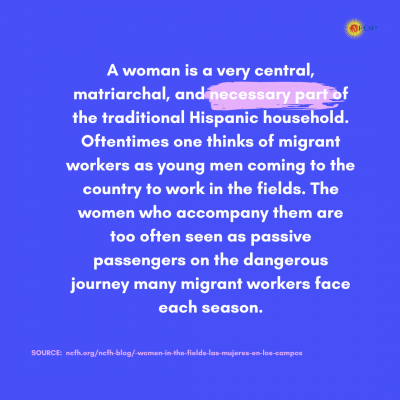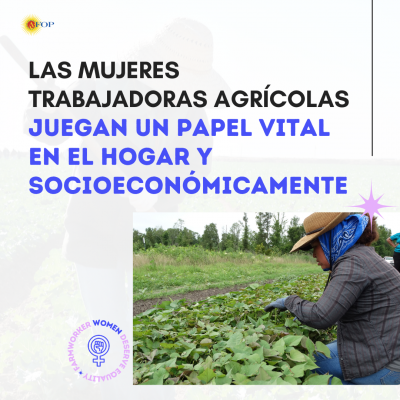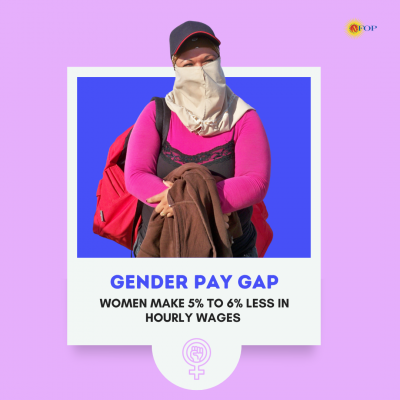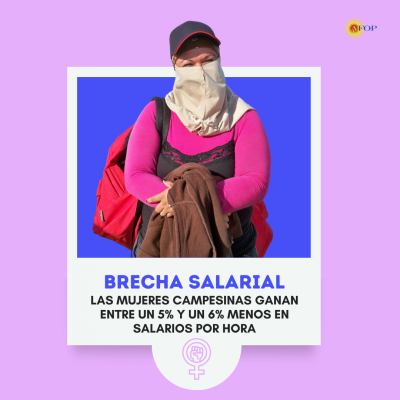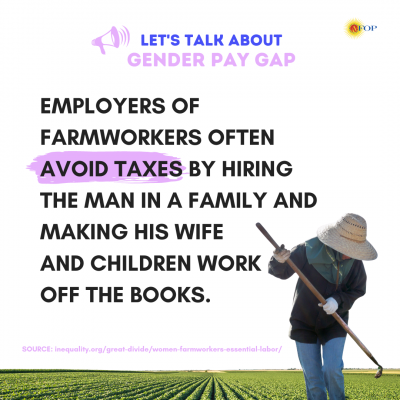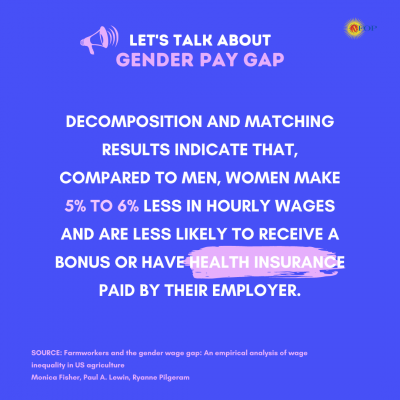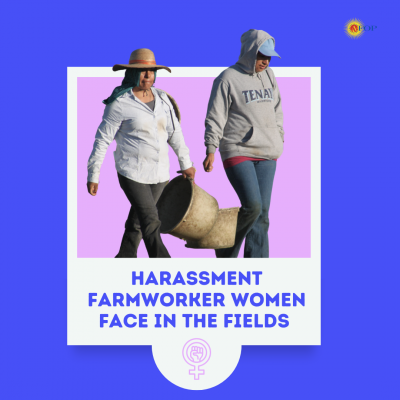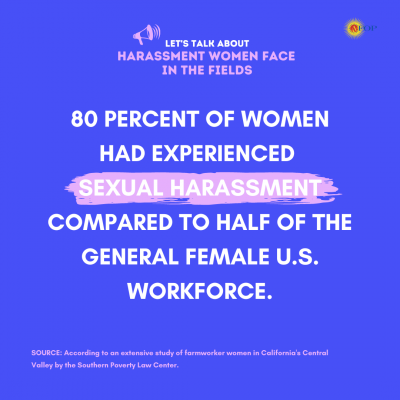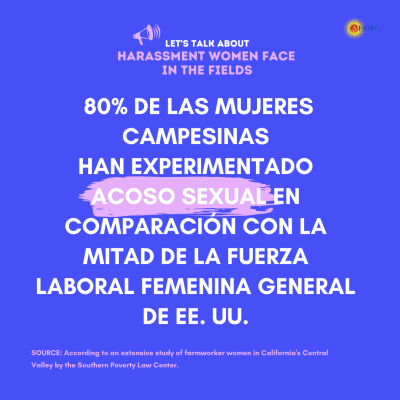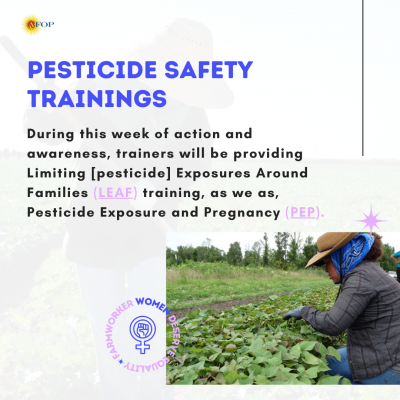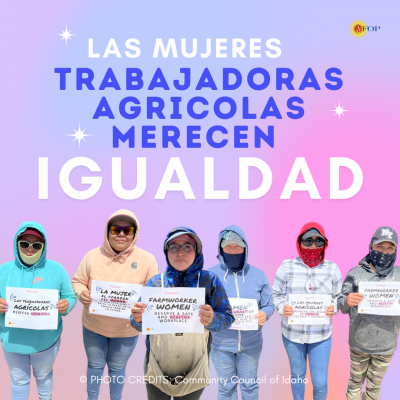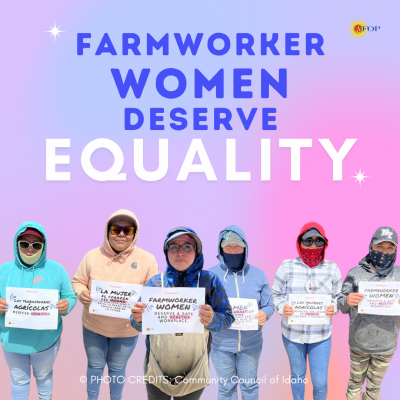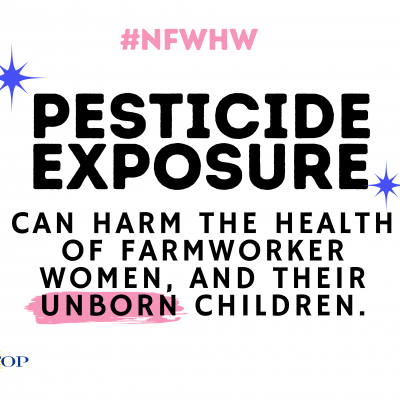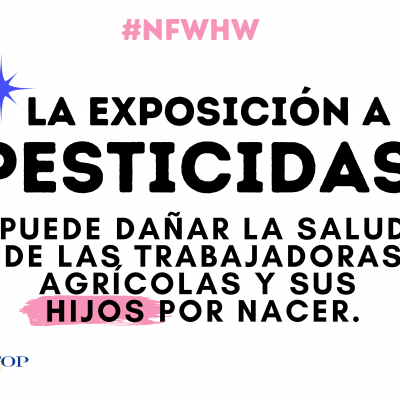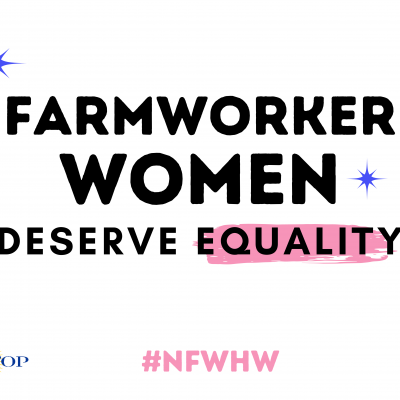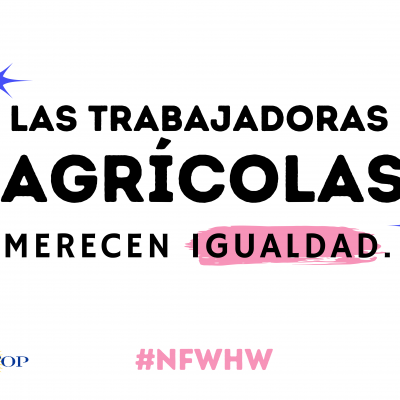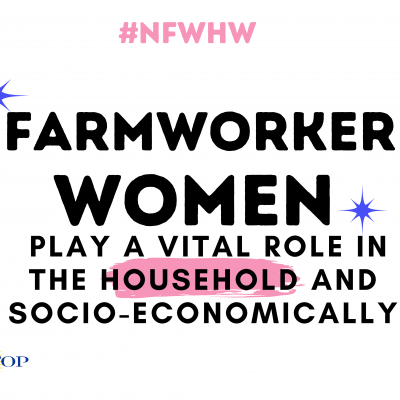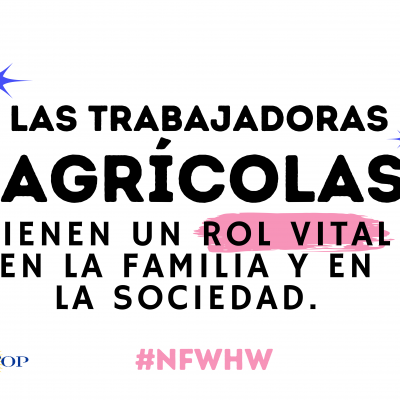We have partnered with for the 2023 National Farmworker Women’s Health Week. #NFWHW2023 is a public awareness campaign aimed at increasing public consciousness and understanding of the health risks farmworker women face, and as an extension, their families from working in the fields. NFWHW will be celebrated from May 14-20, 2023.
Monday: May 15 (DAY 2)
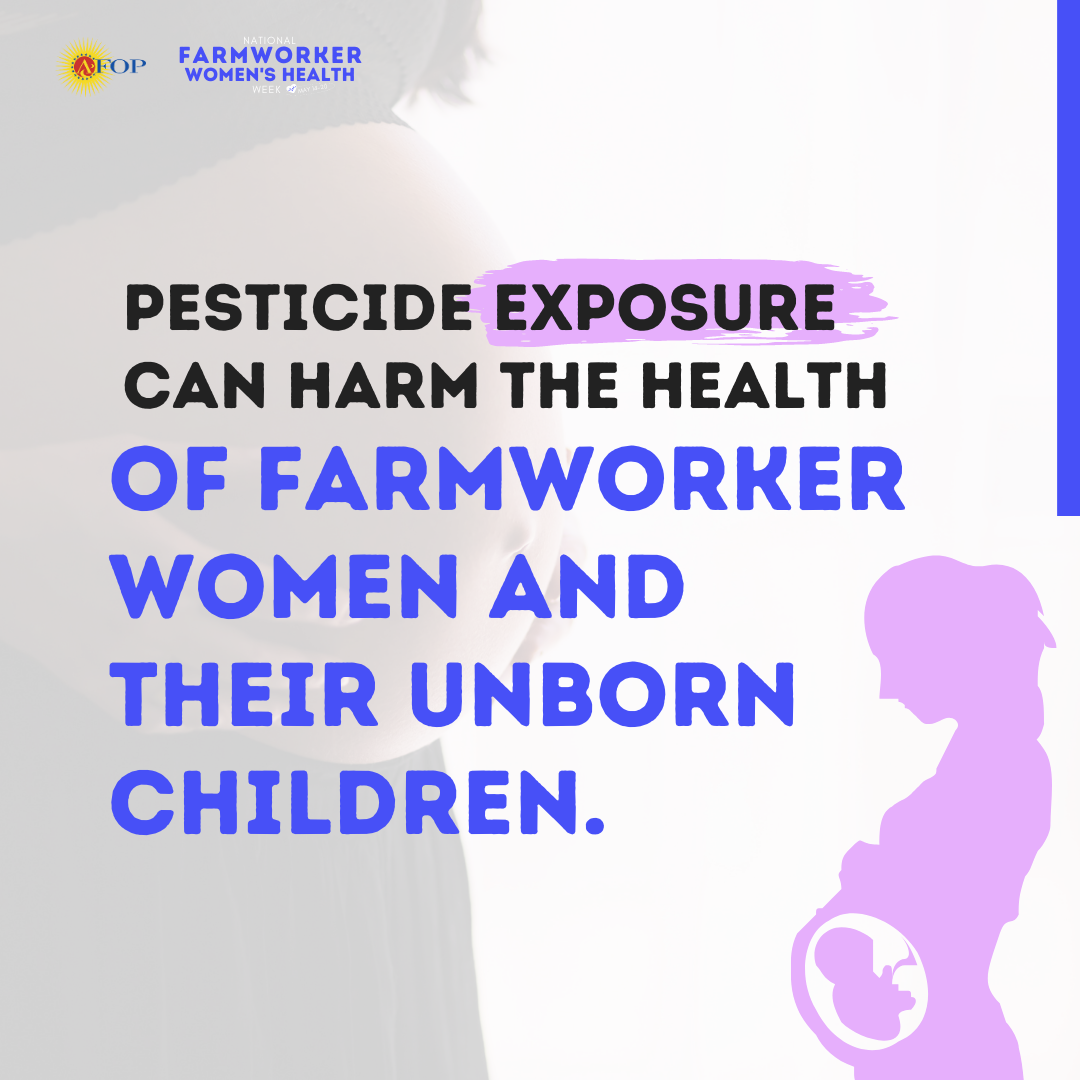
Being in contact with pesticides is harmful, especially during pregnancy. It may lead to miscarriages, preterm births, low birth weight, birth defects and learning problems in children. Living or working in an area with crops, you may be exposed to large amounts of pesticides. During pregnancy it is very important to avoid being exposed to pesticides. Taking precautions even when not pregnant is vital, but especially so if you are planning to be, or if you could be. Often pesticide exposure can happen in the first weeks before a woman realizes she’s pregnant and those first weeks are the most dangerous time for exposure.
Tuesday: May 16 (DAY 3)
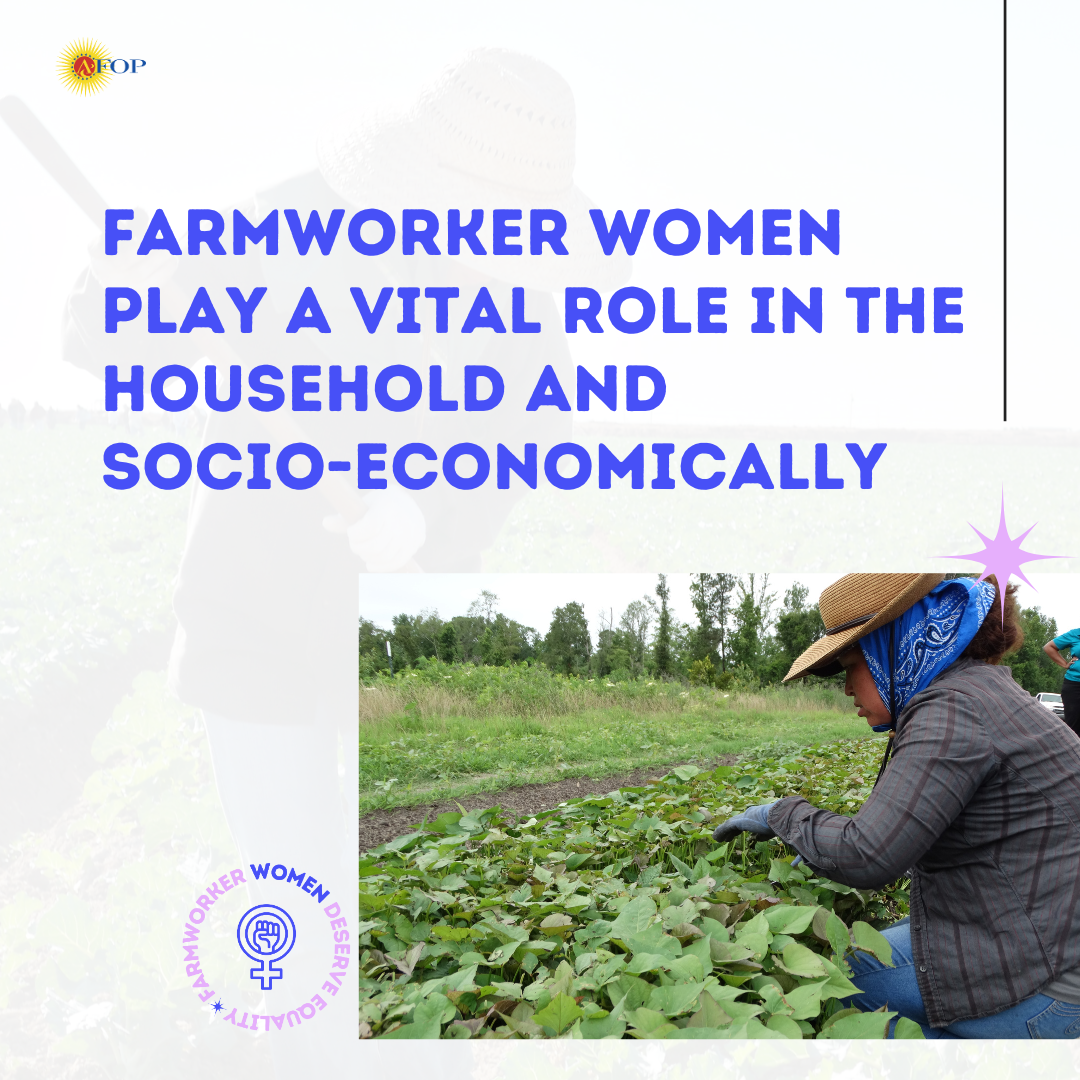
Farmworker women are not only hardworking but although some studies suggest that male caregivers are also driven by a similar sense of commitment and family responsibility, women are further motivated by their concern about the emotional and physical well-being of people for whom they provide care.
Women that are well informed about the risks of pesticide exposure and pesticide residues, will most likely transfer that knowledge and care to the rest of the family. Investing in education for #farmworker women is a great strategy to keep #farmworker families are safe.
Wednesday: May 17 (DAY 4)

If there is ONE message we would like to spread this #NFWHW is: Farmworker women deserve EQUALITY.
Please Join the NFWHW campaign by using the SPEAK OUT SIGNS. You can find the signs on @afophealth website or visit https://afop.org/nfwhw/ find all the instructions. Merch is also available!
Print the signs, take a photo, post them on social media, and tag us and @afophealth. Make sure to use the #NFWHW2023
Thursday, May 18: (DAY 5)
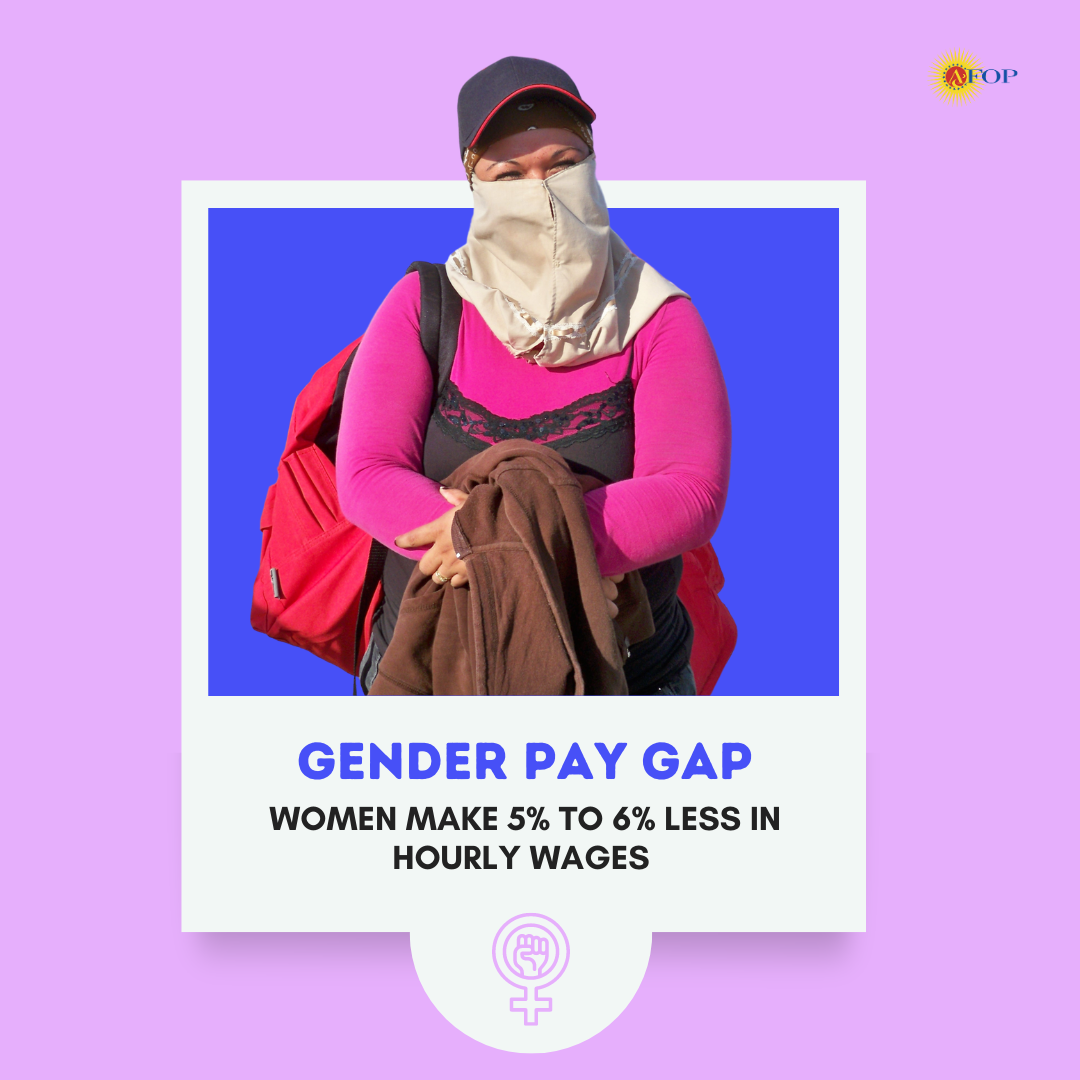
Today during Nat’l Farmworker Women’s Health Week let's talk about #PAYGAP
Farmworker Women work as many hours as farmworker men in the fields still women make 5% to 6% less in hourly wages.
It is also known that in some cases Employers of farmworkers often avoid taxes by hiring the man in a family and making his wife and children work off the books.
Thursday, May 19: (DAY 6)
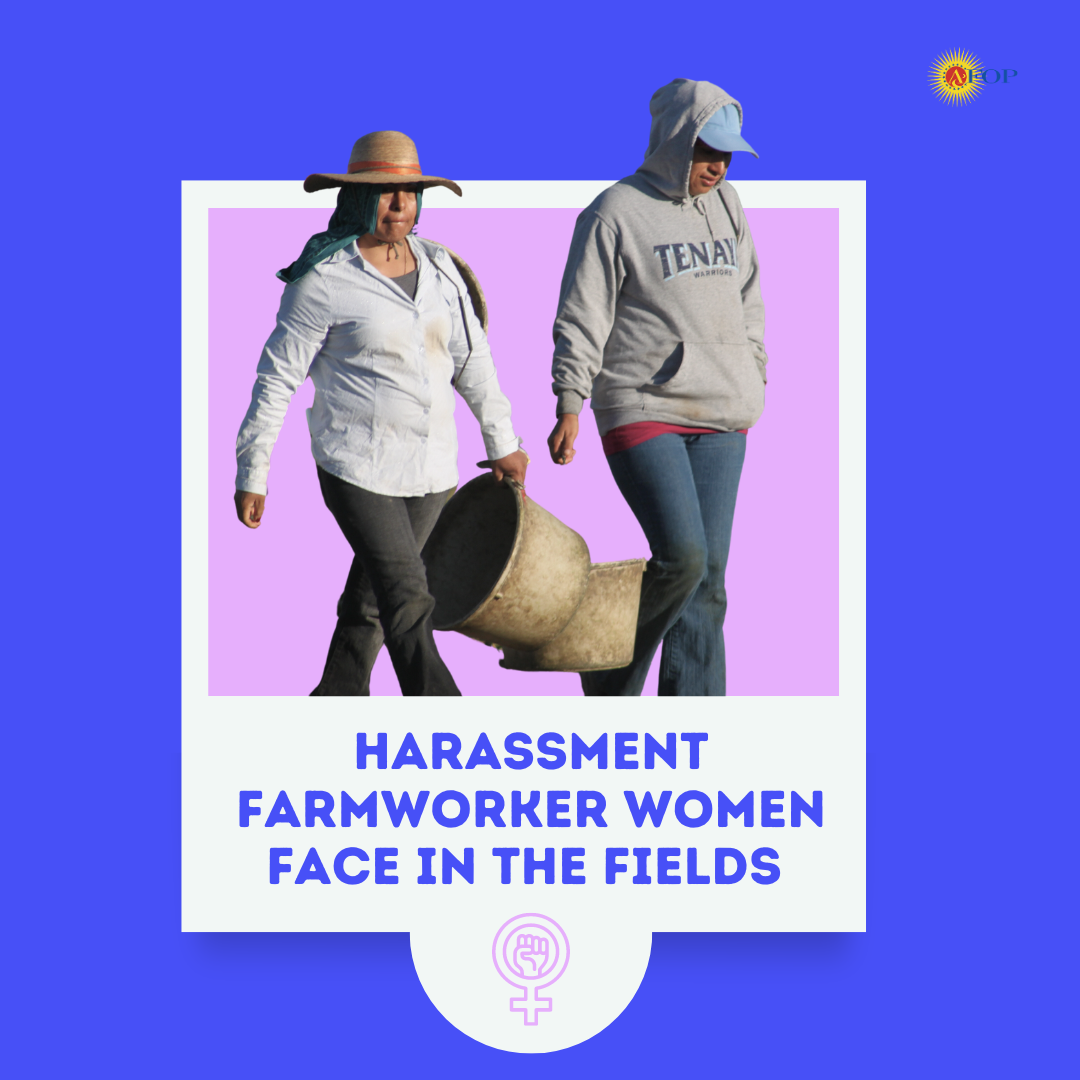
According to an extensive study of farmworker women in California's Central Valley by the Southern Poverty Law Center, 80 percent of women had experienced sexual harassment compared to half of the general female U.S. workforce . The same study found the factors that make farmworker women most vulnerable to these abuses are language barriers, extreme poverty, isolation, and discrimination. According to a new report about farmworker women and sexual abuse by Human Rights Watch, "hundreds of thousands of immigrant farmworker women and girls in the United States face a high risk of sexual violence and sexual harassment in their workplaces because U.S. authorities and employers fail to protect them adequately." Because of the many barriers they face, such as fear, poverty, lack of transportation, lack of resources, and shame, most farmworker women will not come forward to get help.
Thursday, May 20: (DAY 7)
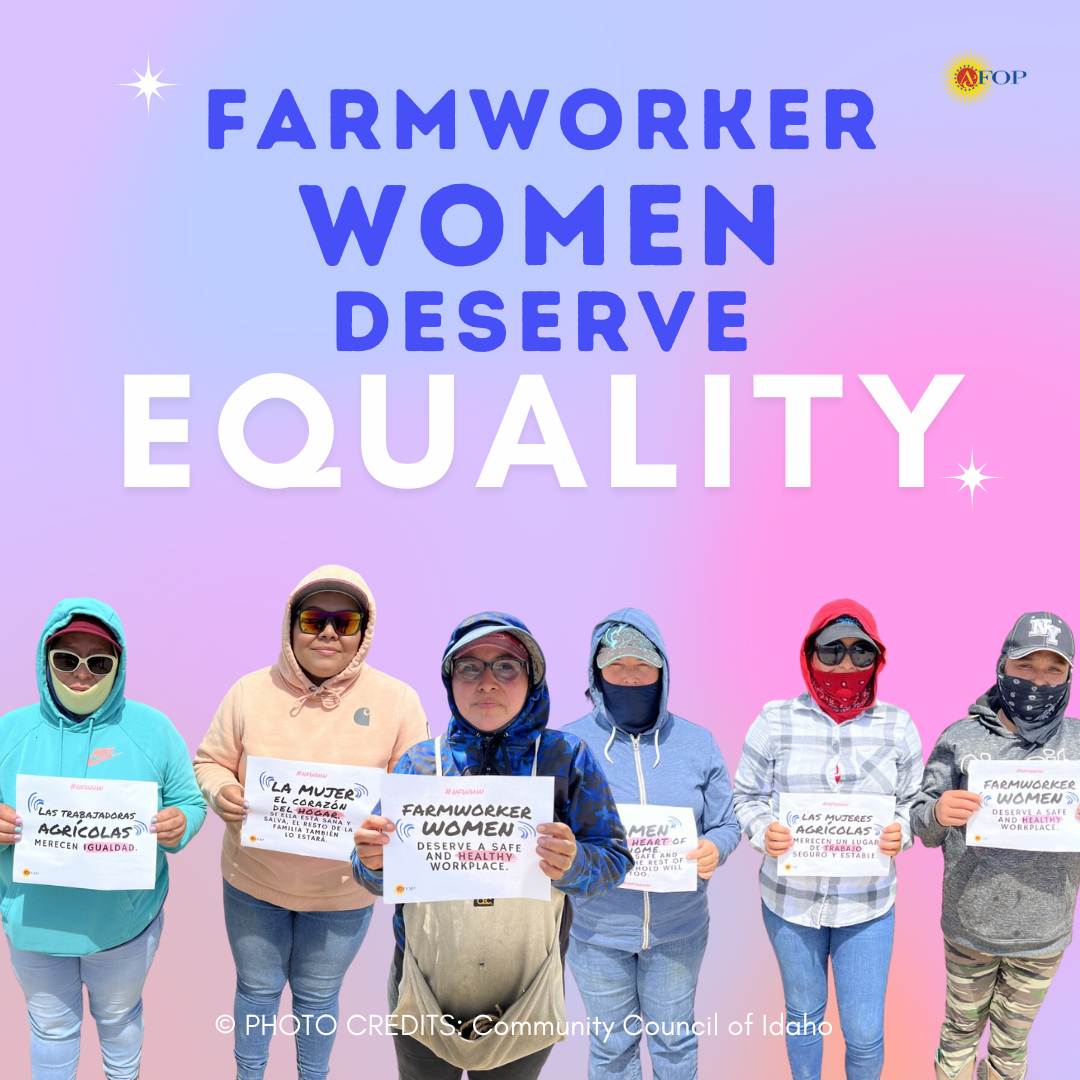
Last day of joining @afophealth on their 2023 Nat’l Farmworker Women’s Health Week. During the last week we have been aiming to raise awareness about the amazing contributions farmworker women have given to society while facing daily challenges due to inequity in access to health, wages, and education.
The goal has been to create a lasting conversation about the health issues facing farmworker women as well as support for programs and efforts that work to educate and mitigate those health problems, thus improving overall farmworker women’s health education with more than 30 partner organizations nation-wide.
To learn more about this movement and ways you can donate or get involved please visit:
https://afop.org/nfwhw/



